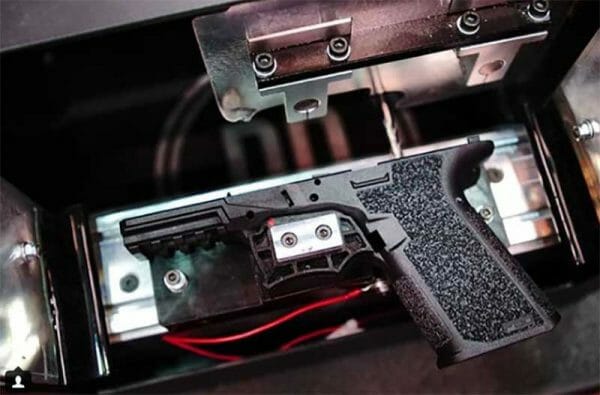
Oregon’s ban on so-called “ghost guns” is now the law, as of Sunday, and the Oregon Firearms Federation is warning Beaver State gun owners with unserialized firearms that they are “officially criminals.”
KGW in Portland noted the law took effect Sept. 1 after a federal judge “denied a legal challenge that tried to block the prohibition.” OFF and the Firearms Policy Coalition had challenged the ban.
U.S. District Judge Adrienne Nelson, in a 9-page ruling, wrote, “Plaintiffs have offered no evidence to support the implication that unserialized firearms, undetectable firearms, or unserialized, unfinished frames and receivers are in common use by law-abiding citizens for lawful purposes.”
So-called “ghost guns” have been demonized by the Biden-Harris administration as tools used in crimes by people who don’t want to get caught. According to KGW, in 2022, the Justice Department reported 25,785 such guns had been seized in this country.
According to KOIN News, “In 2022, investigators found a ghost gun manufacturing operation at a home in Salem.”
In response, Oregon Attorney General Ellen Rosenblum, who was a defendant in the lawsuit, “made it a priority in 2023 to get them banned,” KOIN recalled. The result was House Bill 2025, which was passed in 2023, but has been held up by a series of legal challenges, KOIN said.
“Ghost Guns” are firearms assembled by home gunsmiths. Opponents of the law, including OFF, describe personally manufactured firearms as a tradition, and describe home gunsmiths as “America’s most innovative firearms creators.”
In a bizarre report from OPB (Oregon Public Broadcasting), a reporter wrote, “The unserialized guns are assembled at home and can be easily purchased online, but can’t be picked up in a metal detector.” OFF called this an “absurd assumption.”
Unserialized guns are frequently manufactured from kits, and in Oregon, people who build such firearms are required to get them serialized by federally licensed firearms retailers. The prohibition on the sale, transfer and import of guns without serial numbers has been prohibited since July 2023, KGW noted.
“Ghost Guns” are prohibited in 15 states, including California, Washington and Nevada, the report added.
But OFF, in its weekend bulletin, contended, “Currently we know of no FFL’s who both have the proper licenses and equipment to serialize guns and are willing put their names on a gun made by someone else. If you know of any FFL’s that are willing to provide this service please let us know.”
According to OPB, the new requirement applies to all firearms built after Oct. 22, 1968. Prior to that year, it was not uncommon for some firearms to be manufactured without serial numbers. The mandate came in with passage of the Gun Control Act of 1968.
Violators of the Oregon law could face fines up to $1,000 for first-time offenders, and the size of the penalty goes up for repeat offenders, who could also be jailed.
In its bulletin, OFF acknowledges there is little chance to get this changed by the Legislature in Salem, which is controlled by Democrats and even saw Republicans join in supporting the new law. Instead, the organization is vowing to continue its legal fight “as long as” it has public support.
On the national front, unserialized firearms have become the newest bogeyman for the gun prohibition lobby. The Michael Bloomberg-backed Everytown for Gun Safety declares, “They are becoming a weapon of choice for violent criminals, gun traffickers, and other legally prohibited persons, as well as right-wing extremists.”
As far back as 2021, the New York Times was reporting on “ghost guns” calling them the “lethal weapon of easy access.”
The Center for American Progress also complains that criminals who are prohibited from legally buying and owning firearms can build their own guns by using component kits.
In addition to the states named above, “ghost guns” are also regulated (prohibited) in Colorado, Connecticut, Delaware, Hawaii, Illinois, Maryland, Massachusetts, New Jersey, New York, Rhode Island and Vermont.
While unserialized firearms have not become a major campaign issue, now that the election season is shifting into post-Labor Day high gear, there is no guarantee they will not become one. Liberals need an issue to avoid running on their record, and “ghost guns” could provide that distraction.
It is not clear what the next move may be. The Nelson ruling could be appealed, but in the meantime, the law is in effect. Besides, the Ninth U.S. Circuit Court of Appeals in San Francisco has not been historically friendly to gun rights cases.
About Dave Workman

from https://ift.tt/o3sMBDT
via IFTTT

No comments:
Post a Comment